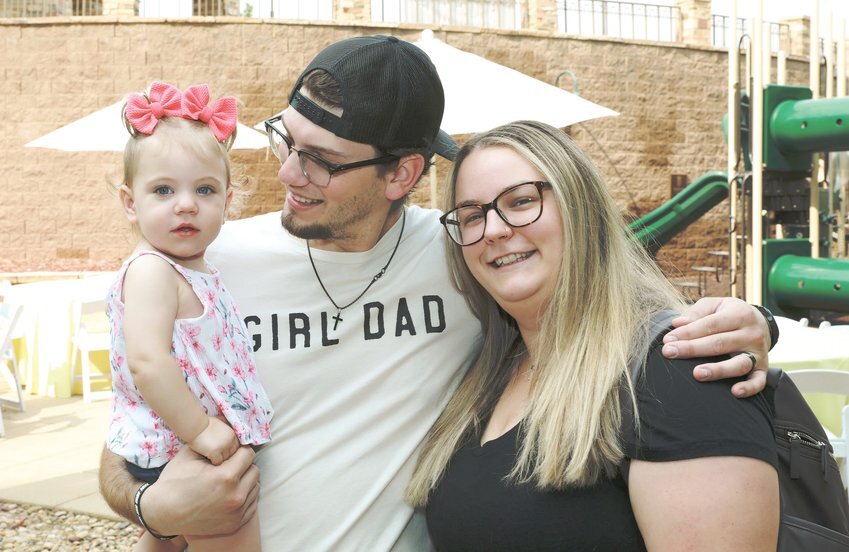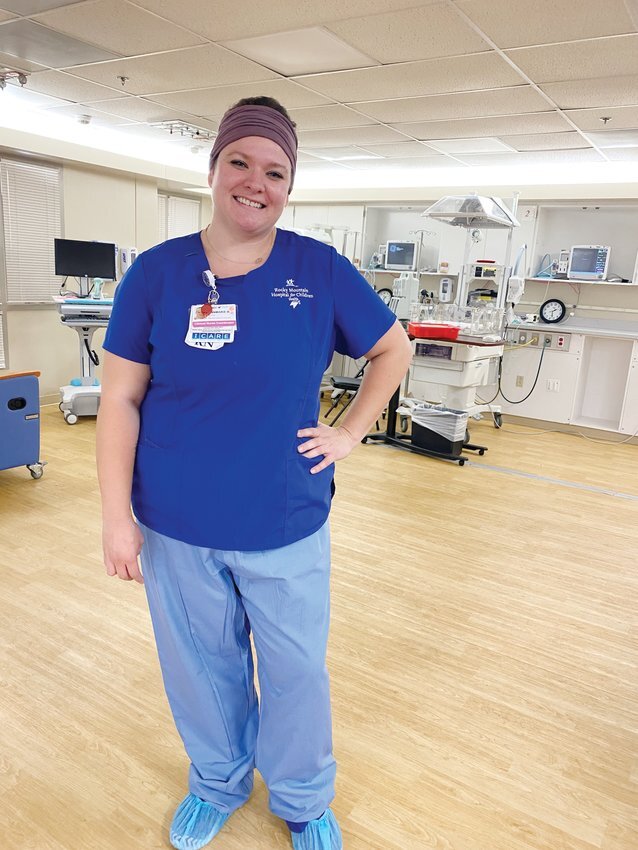A vital and 'lovely job': NICU nurses care for babies and families in trying times

They are the last people parents want to see on what it supposed to be one of the happiest days of their lives. But, in a short amount of time, they become people who parents treasure, remember and appreciate forever.
These people are the nurses that take care of babies sent to the newborn intensive care unit, or NICU, after birth.
When having a baby, parents plan for and think about the happy moment when the little bundle of joy arrives. When a doctor orders a baby, especially those born prematurely, to the NICU, the happiness is replaced with a quick sense of fear, confusion, and anxiety.
Helping to settle and understand all of those emotions are the NICU nurses.
Kirtley Ceballos, the fetal and neonatal director of patient services at Children's Hospital Colorado, said that no matter where the hospital is located along the Front Range, nurses in every single NICU facility brings stability, kindness, understanding and the ability to educate parents on what to do now.
“NICU units are not just about caring for the babies,” Ceballos said. “These nurses care for the entire family. They help moms hold these fragile babies, they interpret cries and teach parents how to understand certain facial expressions. They educate them on what they need to do.”
Whether it is helping a mother start pumping breast milk to help a baby who is too weak to latch on or teaching the new father how to overcome his fears and hold a baby that may be no bigger than his hand, NICU nurses serve as support to parents as they provide care for a baby.
'I just loved the babies'
NICU nurses are such experts that the quickness with which they can bathe, change a diaper, and get a baby resting peacefully in a bed can be intimidating to a new parent.
Longtime NICU nurse Theresa Cuccio, with Sky Ridge Medical Center in Lone Tree, said because it is second nature for unit nurses to care for small babies, they just zoom through. Sometimes they forget a parent is watching with a lot of anxiety, she said.

AnnMarie Buczyna, a fifth-year NICU nurse at the Level 3 at the Medical Center for Aurora, said teaching parents how to become comfortable caring for their new baby is one of her favorite parts of the job. Buczyna has worked throughout the Denver metro area with babies, including Children's Hospital Colorado.
“It's everyday life in the NICU, but for parents it can be one of the scariest days of their lives,” she said. “NICU nurses are happy to help both the parents and the baby.”
Cuccio, a NICU nurse for 33 years, said she has valued every moment of her career. The longtime nurse said in nursing school she spent a few hours observing babies in a NICU and was immediately hooked.
“I just loved the babies,” she said. “NICU nursing is so much more unique that other areas. Here we must function as a team. You cannot do your own thing. We have a great team that comes together for the moments to celebrate and for the tough days. It is the nature of how we function, you are never on an island.”
Cuccio said NICU is unique because of the family aspect. Parents have such high expectations when they come into delivery that the thought of going to NICU can be tough, Cuccio said.
“You have to put yourself in their shoes,” she said. “As nurses, we are patient because we know this is not what they anticipated. These parents are thrown for a loop and the care their baby needs is different than they expected.”
'OK to take a break'
In a lot of cases, Buczyna said NICU nurses have to act as a voice of reason for parents. Cuccio and Buczyna said so often parents, mothers especially, come into NICU blaming themselves, thinking they cannot leave the baby for a second.
“We let them know that we have the baby's care first,” Cuccio said. “We let them know it is OK to put the baby down and walk away. It is OK to take a break.”

As time passes in the NICU, Cuccio said the goal is to teach these parents to do the work in feeding, changing and caring for the baby.
“As nurses, sometimes the best thing we can do is take a step back and be supportive,” Cuccio said. “We work to educate them and empower them.”
Cuccio said working with parents can be rewarding for NICU nurses as they watch them go from being scared to even hold their baby to being confident, and once the baby is strong enough, carrying them out proudly in the car seat.
Cuccio and Buczyna said NICUs are also unique in how patients come in. Some days the unit will see no babies and the following day suddenly there is an onslaught of babies being born that need the added care.
The time patients are with NICU can range from six hours to months, Cuccio said. Sometimes a situation ends in tragedy and others end with a baby going home after months of treatment.
Cuccio recalled a “Christmas miracle baby” who came early while her parents were visiting Colorado. The baby needed a lot of time to get stronger. Seeing that baby girl leave in the arms of her happy parents was a day to celebrate, Cuccio said.
Cuccio and Buczyna said they can see the impact they have on families for years after they leave NICU. Each year, hospitals often do reunions where NICU nurses get to see parents and the children they have treated. Cuccio said parents are so grateful for the caring services nurses provide that they come back year after year to continue saying “thank you.”
Cabello said going beyond the baby and family care, NICU nurses are the ones doctors turn to the most. Doctors value their opinions in deciding treatment options for babies because they are the ones with them the most, she said.
With no plans of slowing down, Cuccio summed up her career as a “wonderful experience.”
“It's great to be a part of a new family's experience,” she said. “It is a lovely job.”
This story was originally published in Colorado Community Media and has been published here with permission.
